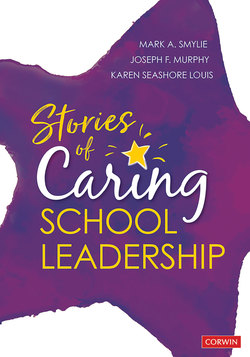Читать книгу Stories of Caring School Leadership - Mark A. Smylie - Страница 21
На сайте Литреса книга снята с продажи.
Competencies of Caring
ОглавлениеIn addition to aims and positive virtues and mindsets, to be caring requires competency. According to Benner and Gordon, professional practice “is always bound up in knowing and doing.”14 Effort and sincerity are important and may be appreciated, but particular actions and interactions may not be perceived as caring or very helpful if they are uninformed, inadequate, misguided, or poorly performed.
14Benner & Gordon (1996, p. 50).
In caring, one important area of competency is knowledge and authentic understanding of others and their needs, problems, joys, concerns, and situations. If educators have inaccurate understanding of who students are and what they want and need, they may make well-meaning attempts to be caring but ultimately miss the mark as to what is caring and helpful in the eyes of students. Developing such understanding is related to one’s ability to inquire, listen and hear, observe and see, assess and understand, and learn about others. Social-emotional intelligence is particularly important to caring and caring school leadership. Also important is understanding persons’ and groups’ races, classes, genders, sexual orientations, languages, cultures, religious beliefs, and relevant contexts. Education scholar Audrey Thompson argues that “the possibility of adequate responsiveness to others depends upon our being able to understand their situations in ways that do not simply reduce them to projections of our … assumptions.”15 She continues that “[school] administrators need to understand the full picture of the worlds in which their students move.”
15Thompson (1998, pp. 541, 543).
A second area of competency concerns understanding the relative effectiveness of strategies to address the needs and concerns of others and to promote their interests. This includes knowledge and skills to engage these strategies successfully. Caring requires knowledge and skill to develop or select, adapt, and enact practices that pursue the aims of caring; that bring virtues of caring to life; and that align with the understanding of others, their situations, and their joys, needs, and concerns. Caring further requires the ability to wrestle with ethical and practical dilemmas posed by different and competing needs and considerations.
A third area of competency concerns knowledge of self and the ability to develop and deepen one’s own capacity for caring. Knowledge of self involves understanding one’s orientations and inclinations, strengths and limitations, and predispositions and prejudices. Recognizing the sources of one’s fears and joys may be crucial in thinking and acting in a caring manner.
A fourth area of competency, especially important to school leaders, consists of knowledge and skills for developing caring among others and creating organizational contexts conducive to caring. This area includes understanding how to think about caring as a property of classroom and school organization, not only as a quality of interpersonal relationships. It includes knowledge and skill related to professional learning and development and organizational change. It encompasses knowledge and skill to create supportive structures and processes, to design work and social arrangements, and to develop organizational cultures imbued with the virtues and mindsets of caring.
